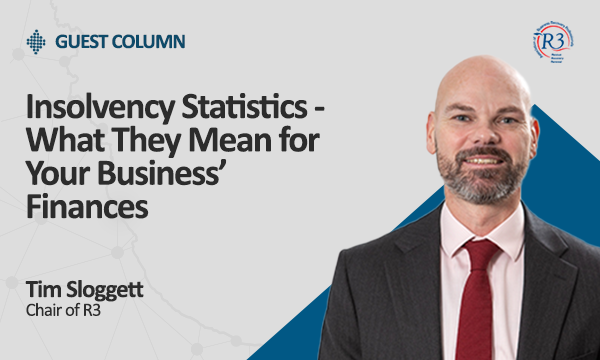Things about Insolvency Practitioner
Table of ContentsInsolvency Practitioner Fundamentals ExplainedInsolvency Practitioner for BeginnersSee This Report on Insolvency PractitionerInsolvency Practitioner Fundamentals ExplainedHow Insolvency Practitioner can Save You Time, Stress, and Money.3 Simple Techniques For Insolvency PractitionerThe Insolvency Practitioner Statements
Insolvency is when obligations are more than the worth of the firm, or when a debtor can not pay the financial obligations they owe. A firm can end up being insolvent because of a number of scenarios that bring about poor cash money circulation. When encountered with bankruptcy, a business or individual can contact financial institutions straight and restructure financial obligations to pay them off.Insolvency can cause bankruptcy proceedings, in which lawsuit will certainly be taken against the bankrupt person or entity, and assets may be sold off to pay off arrearages. Company owner may speak to creditors directly and restructure financial debts right into even more manageable installations. Financial institutions are typically amenable to this technique since they want to be paid back and stay clear of losses, also if the repayment gets on a postponed timetable.
Not known Factual Statements About Insolvency Practitioner
The proprietor creates a proposition describing how the financial obligation may be restructured using cost decreases or various other strategies for support. The proposition reveals creditors exactly how the business may generate sufficient capital for successful operations while paying its financial obligations. Typically, a forgiven financial debt might be considered earnings by the Irs (IRS).

The 10-Second Trick For Insolvency Practitioner
Business might finish up paying huge amounts of money in problems and be overcome procedures. When procedures stop, so does the company's earnings. Lack of income leads to accounts payable and financial institutions asking for money owed to them. Some business end up being insolvent since their goods or solutions don't evolve to fit customers' changing demands.
Costs surpass earnings and costs remain overdue. Kinds of insolvency include cash-flow insolvency and balance-sheet insolvency. Cash-flow insolvency happens when a company has the assets to cover their debts however they remain in the wrong type, such as property instead of liquid funds. Balance-sheet insolvency, on the various other hand, shows a lack of possessions in any type to cover financial obligations.
The internal revenue service states that an individual is bankrupt when the complete liabilities surpass complete properties. A insolvency, on the other hand, is a real court order that shows how a bankrupt person or company will certainly settle their lenders, or just how they will certainly offer their properties in order to make the payments.
8 Easy Facts About Insolvency Practitioner Described

Financial debt loan consolidation is when you incorporate multiple fundings into one new car loan, usually to achieve much better terms. Bankruptcy is not the like personal bankruptcy, although a business that has actually come to be financially troubled might apply for insolvency. Bankruptcy is the state of not being able to pay your obligations while bankruptcy is a legal process to discharge your financial debts.
Recognizing the factors that can address result in bankruptcy, such as overspending, can assist you stop insolvency and its repercussions.
The Single Strategy To Use For Insolvency Practitioner
It is popular that directors and policemans of firms (and managers of restricted responsibility business) owe fiduciary obligations to their companies and their shareholders (or participants). These fiduciary responsibilities are specified by state laws and, though there are variants from state to state, they typically include an obligation of loyalty and a task of care.
The task of treatment requires supervisors and policemans to exercise persistance, to make educated choices, and to act in good belief their explanation so that their activities remain in the very best interest of the firm. Though beyond the extent of this discussion, some states enable these duties to be restricted either by so noting in the organizational documents or adhering to various other demands.
The 2-Minute Rule for Insolvency Practitioner
The majority of states specify bankruptcy in 2 methods( 1) when a company's liabilities end up being higher than the sum of its assets or (2) when the firm becomes unable to pay its debts as they end up being dueand accept both meanings (Insolvency Practitioner). The shift in obligations occurs due to the fact that when a business is insolvent, there is no worth in the firm past that owed to the firm's creditors so that the equity owners no more have an economic risk in the firm
Beware about offering shareholders favoritism at the expense of creditors (e.g., authorizing and moneying a dividend or a supply redemption). Be mindful about favoritism between classes of investors. Make sensible initiatives to find out all the realities before taking a certain training course of activity; directors need to really think that any kind of choices made are in the very best check my source rate of interests of the corporation in its whole (i.e., decisions will be examined in hindsight taking into account the impact of such actions on the company).
In any kind of personal bankruptcy or insolvency case, settlements made to certain financial institutions at the expenditure of other financial institutions can be clawed back, especially if there is some link in between the firm and the financial institution. Consider suggesting at an annual stockholder conference (or any type of other conference of investors) a resolution affirming that all prior business choices and actions taken by the directors and policemans of the corporation were absorbed great confidence after a workout of practical care.
Insolvency Practitioner Fundamentals Explained
Completely divulge any individual or business connections with parties beyond of deals entailing the firm to avoid the look of a problem of passion. In evaluating prospective fund raising transactions or a sale of possessions of the struggling corporation, be conscious that these purchases may be looked at later on due to any type of subsequent development of supervisors' fiduciary responsibilities to include creditors.
Comments on “Insolvency Practitioner - Truths”